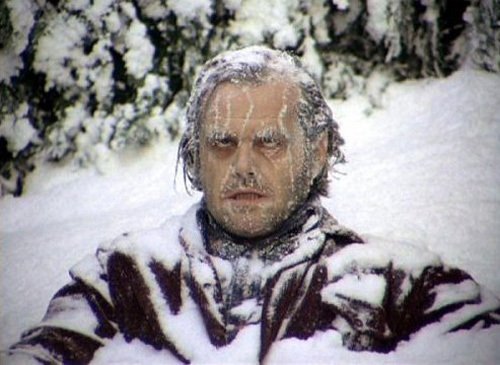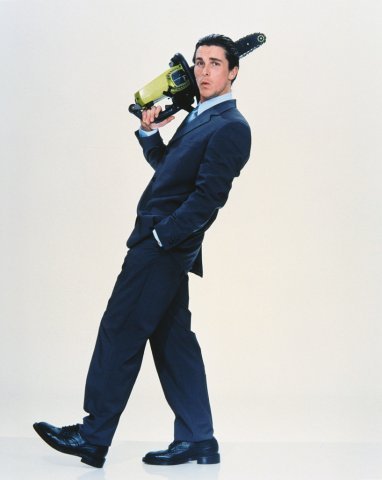Save our souls: how reality shows affect people
The dictatorship of focus groups , the devilish machinations of television channels, the dominance of cliches and even the lies of educational television channels - all this pales in comparison with the harm that modern TV (and viewers) do on reality shows.
Here, however, I will not prove the negative impact of viewing “House 2” (everyone knows this already) - it is better to illustrate this thesis with an example of serious scientific work.

In the study "Why do people watch reality shows"American professors Stephen Reiss and James Wiltz proved that people watch such programs from the most terrible motives. And this is not about voyeurism. Moreover, the desire to spy on other people has, in fact, little in common with the real picture of what is happening: in fact, the main thing for the audience of the hypothetical “Behind the Glass” is to reinforce a sense of self-importance and to free oneself from the shackles of morality for a short time. Moreover, such people are much more concerned about their own social status, and they are much more vengeful than others. According to the authors of the study, such people are much more motivated by their observation of other people's suffering and simply unpleasant stupid situations.
If you develop this idea, then the average fan of a reality show is ... Patrick Bateman from "American Psycho."

Guys, I’ve seen this in Bad Girls!
By the way, it’s good that they remembered the killers: in “Reality of real television: do reality shows affect crime rates” Leslie Chiu and Mary Lopez on the example of the reality show Laguna Beach (it was a nasty spoiled California schoolboy) showed that the reality shows can really worsen the criminal situation. In the real resort town of Laguna Beach, crime fell throughout the 2000s (as elsewhere in America and other countries of the first world, by the way), and after the start of the show began to grow again (there were more robberies and rapes). Maybe, of course, local declassified elements once again developed a sense of contempt for other people's property and health, but most likely, the fact is that this reality show contributed to the creation of a negative image of local residents in the eyes of many viewers and gave a kind of indulgence in offenses in this district. Well, like Bane’s revolution in Dark Knight Rises. Quite simply, a stir of social discord has occurred.

Together we will take the city from corrupt officials! The rich! Those who oppressed entire generations and fed us myths about unprecedented opportunities, and we will return it to you - the people! Now your city! Nobody will bother you, do what you want. Those in power will be smoked out of their depraved nests. And expelled to this cold and cruel world, let them try to survive. The court will decide their fate. We will share their wealth! Their blood will be shed! - Bane revised Laguna Beach
With all this in mind, it would be extremely naive to assume that reality shows do not have a negative effect on viewers (even random ones). In the corresponding studyexamined the impact of one show about plastic surgery on the expectations and decision-making of the audience in this area. It turned out that 78% of people using the services of plastic surgeons watched this show (and 57% were fans). The problem is that, contrary to a common misconception, the lion's share of the work of plastic surgeons is the restoration of the appearance of people who have received any kind of injury, and not the change in the shape of the nose and the creation of silicone valleys. But this show directly affected the growth in demand from people who did not need the help of a surgeon at all, but "they showed it on TV." And this is in the USA, where people work for years without a vacation and local people generally have a rational type of thinking!
It seems to me that, nevertheless, the demand for such programs is dictated not by the viewers themselves, but by the leadership of the TV channels. Such things are done in order to somehow monetize the airtime not occupied by rating programs (80% of TV shows give evening shows - and in the evening there is already an output of an incomparably higher level). It turns out that the dominance of stupidity on TV is not a user choice, but simply a “ballast”.
Of course, it’s easier to start another slag about the life ofpolice dog hairdressers from Beverly Hills than to give Werner Herzogmoney for a smart and interesting transfer. But I am sure - with the growth of material well-being and the level of culture, the average audience will become much more demanding on the quality of the broadcasts. Users of digital and cable TV already mentioned “House 2” (and its many analogues) just do not watch, it remains only to “clear” the space on digital and cable TV. Current technical means (rating systems, communication with social networks, creating the “weight” of each program in accordance with the number of views, direct voting) allow this to be done.
I attach a small poll to the post.
Here, however, I will not prove the negative impact of viewing “House 2” (everyone knows this already) - it is better to illustrate this thesis with an example of serious scientific work.

In the study "Why do people watch reality shows"American professors Stephen Reiss and James Wiltz proved that people watch such programs from the most terrible motives. And this is not about voyeurism. Moreover, the desire to spy on other people has, in fact, little in common with the real picture of what is happening: in fact, the main thing for the audience of the hypothetical “Behind the Glass” is to reinforce a sense of self-importance and to free oneself from the shackles of morality for a short time. Moreover, such people are much more concerned about their own social status, and they are much more vengeful than others. According to the authors of the study, such people are much more motivated by their observation of other people's suffering and simply unpleasant stupid situations.
If you develop this idea, then the average fan of a reality show is ... Patrick Bateman from "American Psycho."

Guys, I’ve seen this in Bad Girls!
By the way, it’s good that they remembered the killers: in “Reality of real television: do reality shows affect crime rates” Leslie Chiu and Mary Lopez on the example of the reality show Laguna Beach (it was a nasty spoiled California schoolboy) showed that the reality shows can really worsen the criminal situation. In the real resort town of Laguna Beach, crime fell throughout the 2000s (as elsewhere in America and other countries of the first world, by the way), and after the start of the show began to grow again (there were more robberies and rapes). Maybe, of course, local declassified elements once again developed a sense of contempt for other people's property and health, but most likely, the fact is that this reality show contributed to the creation of a negative image of local residents in the eyes of many viewers and gave a kind of indulgence in offenses in this district. Well, like Bane’s revolution in Dark Knight Rises. Quite simply, a stir of social discord has occurred.

Together we will take the city from corrupt officials! The rich! Those who oppressed entire generations and fed us myths about unprecedented opportunities, and we will return it to you - the people! Now your city! Nobody will bother you, do what you want. Those in power will be smoked out of their depraved nests. And expelled to this cold and cruel world, let them try to survive. The court will decide their fate. We will share their wealth! Their blood will be shed! - Bane revised Laguna Beach
With all this in mind, it would be extremely naive to assume that reality shows do not have a negative effect on viewers (even random ones). In the corresponding studyexamined the impact of one show about plastic surgery on the expectations and decision-making of the audience in this area. It turned out that 78% of people using the services of plastic surgeons watched this show (and 57% were fans). The problem is that, contrary to a common misconception, the lion's share of the work of plastic surgeons is the restoration of the appearance of people who have received any kind of injury, and not the change in the shape of the nose and the creation of silicone valleys. But this show directly affected the growth in demand from people who did not need the help of a surgeon at all, but "they showed it on TV." And this is in the USA, where people work for years without a vacation and local people generally have a rational type of thinking!
It seems to me that, nevertheless, the demand for such programs is dictated not by the viewers themselves, but by the leadership of the TV channels. Such things are done in order to somehow monetize the airtime not occupied by rating programs (80% of TV shows give evening shows - and in the evening there is already an output of an incomparably higher level). It turns out that the dominance of stupidity on TV is not a user choice, but simply a “ballast”.
Of course, it’s easier to start another slag about the life of
I attach a small poll to the post.
Only registered users can participate in the survey. Please come in.
How do you feel about different reality shows?
- 16.6% OK, one form of creating TV production 141
- 78.5% Negative - the dominance of such products is stimulated by the TV crisis 667
- 1.8% Positive - in general, such programs are very interesting and informative 16
- 2.9% Own option (I will write in the comments) 25
